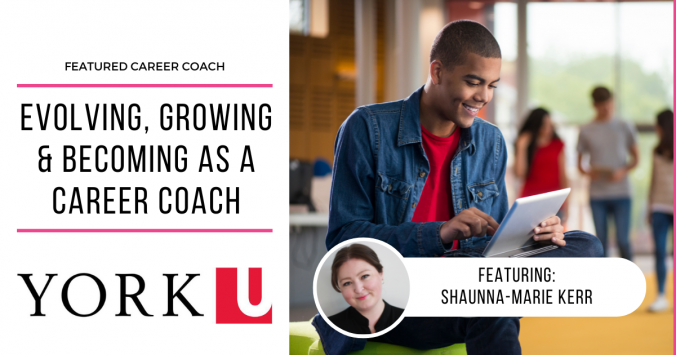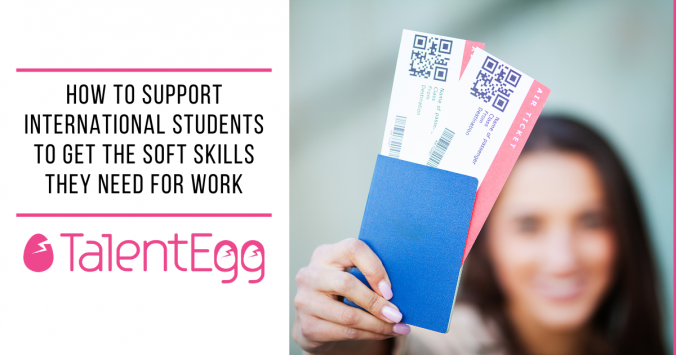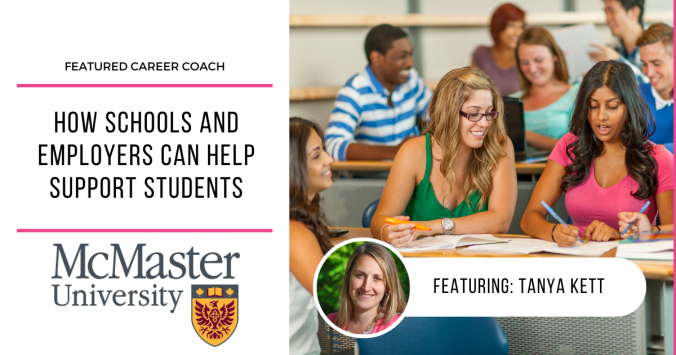TalentEgg was fortunate enough to interview Shaunna-Marie Kerr, Career Education & Exploration at the School of Continuing Studies at York University, with 10+ years of career coaching experience. She is the leader of the virtual career services portal for students and recent alums at the School of Continuing Studies at York University. She provides support and services to students, conducts research and analysis of the labour market and works with technology companies to leverage digital and AI tools in their programs. In addition to her work at the University, she has her coaching practice, is a board member of an anti-violence centre, and is a mother to a four-year-old.
Career Inspiration
Inspiration for Shaunna-Marie’s journey into career education and coaching started after graduation when she faced challenges finding a job that aligned with her skills and values. She began working in a non-profit pre-employment and education program for women who were homeless or precariously housed and discovered her passion for helping people find meaningful work. She saw the positive impact of employment on people’s dignity and self-worth and realized that career and workforce development solutions were where she wanted to focus her career.
Greatest Achievements
We were curious and wanted to know what Shaunna-Marie’s most significant achievements were, and she was glad to fill us in. “In a general sense, my greatest achievement working with students or clients in my coaching practice is all the moments when I have witnessed that mid-conversation shift from frustration and hopelessness to a feeling of possibility and hope.”
Going from there, we asked what she would like to achieve in the future as a career coach. “I have no five-year plan, that’s for sure! My approach is more about seeing a range of possibilities and working to create doors I can walk through later. I feel like we are all ever-evolving, growing, and, as Michelle Obama says, ‘becoming.’ I don’t like to limit my future to only the things I can imagine right now. “
Diversity, Equity & Inclusion
Shaunna-Marie believes that career development and workforce development can only be effective with inclusion, equity, and diversity. She works from an actively anti-racist framework and constantly thinks about her role in systemic and structural oppression. “I recognize the power that place, identity, and perceptions of ‘other’ have as determinants in education, employment, health… everything.”
Kerr went on to say, “Something I think a lot about, in relation to myself but also that applies to employers, is how to engage in non-performative DEI work. It often feels like DEI work is being done as a favour or as good PR when we know that inclusive and equitable hiring is imperative if employers want to have the highest quality candidates, talent, and sustainable growth. In a practical sense, this looks like recognition of foreign and international credentials, skills and competency-based assessments and hiring, and culturally competent interviewing, onboarding, and retention strategies. “
Successfully Transitioning Students from School-to-Work
The Career Services department at the School of Continuing Studies is working on developing a map of the lifecycle of students to provide better support and services at the right time.
“We want to make sure that students are receiving the right information, at the right time, in the right way – interview prep, for example, might not be the most helpful thing on day one of a full-time program, but some exercises around career pathway mapping in those early months of studies could be impactful! We are also expanding services for Alumni to ensure that we have a supportive off-ramp from career services when program alumni might be experiencing a lot of challenges and change and opportunities.” Kerr told us.
Information Overload
We asked Shaunna-Marie to share her thoughts on what she thinks are some of the most common pain points her students face; she told us, “The biggest pain point students seem to have is the amount of information, often conflicting, about career development. We are in a time where so much information is available, but it is increasingly misleading, unrealistic, or just out of date, and many students feel overwhelmed by it. The pandemic and likely recession has led to an almost global sense of general uncertainty regarding the labour market, and we’re seeing more conflicting information about hiring trends across sectors.”
How Can Employers Help A Student’s Career?
With so many conflicting routes and varying information available, we wanted to know how future employers can help their new hires and students. “I believe it’s important for employers to understand the ‘new world’ that these graduates are emerging into and have empathy for the ways in which their last few pre-workforce years have been impacted.”
Kerr went on, ” At the same time, I believe it’s important not to underestimate their abilities and the value they bring to the workplace. For example, the facility many new grads have with virtual and digital environments can go a long way towards bridging organizational gaps that may emerge in virtual/hybrid working arrangements. Many new grads have always lived some parts of their lives in virtual or digital settings, even pre-pandemic.”
She went on to say, “I can think of several ways that their ability to seamlessly integrate their virtual and digital interactions with their in-person interactions can be leveraged in support of team and culture building, inclusion, and even strategic and operational planning related to things like client relations in hybrid settings. I think other aspects of being an inclusive workspace for everyone in a virtual/hybrid environment, like ensuring meaningful check-ins and recognition, dedicated ‘quiet’ hours for deep work, recognizing things like Zoom fatigue, and open office hours for senior leaders can also be helpful.”
Advice for Fellow Career Educators
Advice for Employers Kerr believes that employers should understand the changing world of work and adapt to the new digital recruitment and hybrid work environments. They should provide clear information about the hiring process, be transparent about the skills they are looking for and be open to diverse candidates and new ways of working.
Shaunna-Marie had this final thought for her peers. “Don’t stop your own career development! Keep learning, exploring, and identifying new and promising practices, pursuing professional development, and building your own networks. I learn so much from talking to other people in the career development and workforce development spaces – including former TalentEgg Career Coach of the Year (2020) Ibiyemi Balogun, who always inspires me with her passion for career coaching, planning, and development.”


